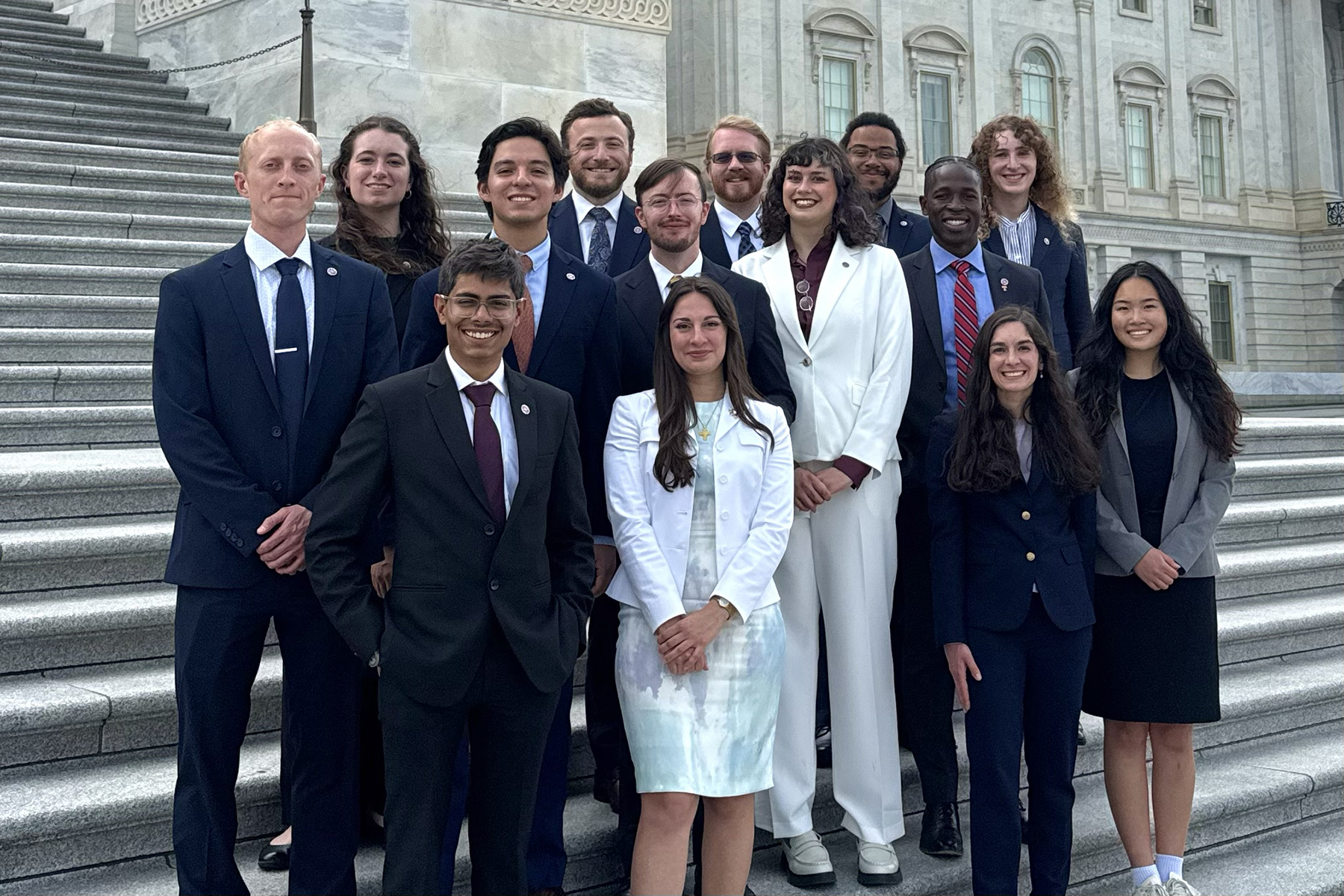Dear Reader,
This summer, I joined the Fusion Student Delegation (FuSD) to better understand fusion energy policy and the systems that shape its development. My background is technical—my research focuses on plasma confinement—but as I learned quickly, effective science policy requires translating complex ideas into practical decisions.
FuSD brought together 14 graduate and undergraduate students from across the country. Our preparation began in January, with biweekly meetings devoted to research on workforce development, innovation, supply chain logistics, and regulation. We analyzed legislation, reviewed recent agency reports, and spoke with professionals from different corners of the fusion ecosystem.
After five months of remote work, our group traveled to Washington, DC, from May 31 to June 6. During that week, we finalized a policy statement that outlines why fusion energy matters, what obstacles remain, and how policymakers can help address them.
The most direct conversations took place in offices on Capitol Hill. Between the 14 of us, we met staffers from 71 congressional offices—49 in the House and 22 in the Senate. We presented our findings and policy recommendations, focusing on issues such as research funding, regulatory reform, and the importance of a robust supply chain. Each office received our policy statement, which we had updated with input from every delegate.
Our schedule was rigorous:
- We met with legal and advocacy experts at Hogan Lovells, Third Way, ClearPath, Commissioner of the Nuclear Regulatory Commission Matthew J. Marzano, and representatives of the American Physical Society.
- We spoke to both Democratic and Republican staff on the House Committee for Science, Space, and Technology, and discussed priorities with the Department of Energy’s Office of Fusion Energy Sciences.
- We visited ARPA-E and the Fusion Industry Association to understand current industry challenges.
While most time was spent on policy, I valued hearing about my peers’ research and perspectives—from novel fusion reactor designs to questions about public outreach. The variety of backgrounds made each discussion more rigorous and grounded.
If you are a student in fusion science or adjacent fields, and have an interest in how national policy works, consider applying to join FuSD in the future. The delegation provides access to decision makers, and a chance to see firsthand how technical and policy considerations interact.
Best regards,
Katarina Nichols
Graduate student
High-Energy-Density Physics Theory Group
Laboratory for Laser Energetics, University of Rochester



